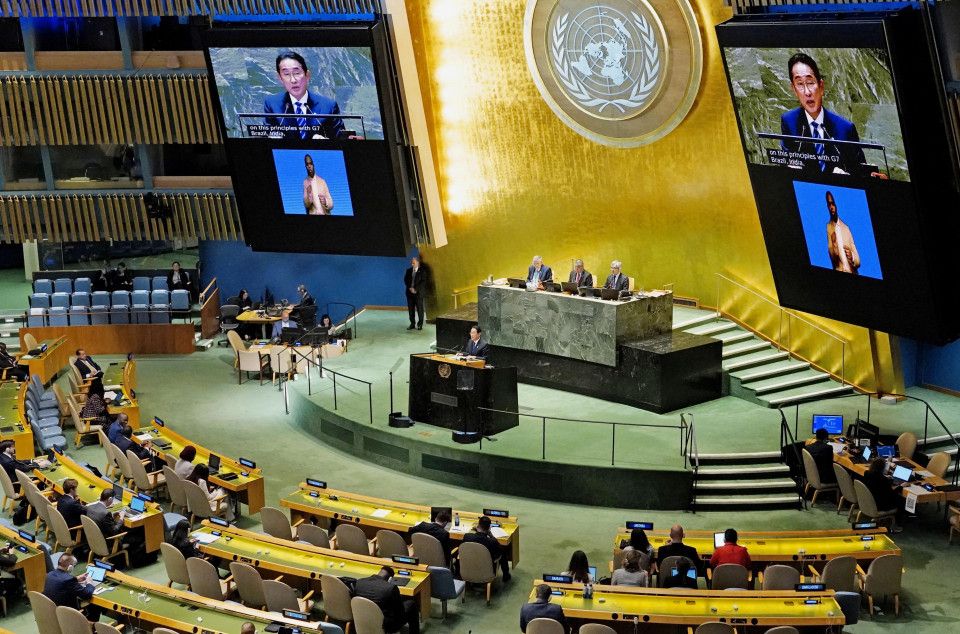
Japanese Prime Minister Fumio Kishida said Sunday that upholding the rule of law is essential at a time when countries with different values must work together to ensure a peaceful and prosperous future.
Kishida made the remarks during a speech at the UN Future Summit, just hours after the world body adopted a pact aimed at better addressing 21st-century challenges ranging from conflict and climate change to human rights and artificial intelligence, Kyodo News reported.
Referring to the principles of the UN Charter as fundamental guidelines for action, Kishida said that “unilateral attempts to change the status quo by force cannot be tolerated anywhere in the world.”
“Only a free and open international order – based on the rule of law – can deliver sustainable development and prosperity,” he added in his speech at UN headquarters.
Kishida, speaking in Japanese, noted that no country can tackle complex global challenges alone, and said that for international cooperation to be successful, “human dignity” must be the foundation.
For a better future, she said, Japan and all other countries must strive to “invest in people,” with a particular focus on empowering women and children. She announced that Japan will launch a program aimed at training the next generation of gender leaders.
The world has seen in recent years how crises such as the wars in Ukraine and the Gaza Strip have left the United Nations paralyzed, unable to carry out much-needed actions due in large part to divisions within its most important decision-making body, the Security Council.
The underlying theme of the two-day summit, which runs through Monday, is the revitalization of multilateralism as world leaders arrive in New York ahead of the annual high-level session of the U.N. General Assembly.
Japan’s ruling party leadership race kicks off with record 9 candidates
Kishida said there was an urgent need to reform the Security Council and restore confidence in its effectiveness, and that the time had come for the international community to take concrete steps to this end, as next year marks the 80th anniversary of the birth of the United Nations.
He also pledged that Japan will continue to work toward nuclear disarmament, saying: “No matter how difficult the path to a world without nuclear weapons is, we cannot stop our progress.”
In his conclusion, Kishida stressed that “world leaders must unite under the banner of multilateralism” and affirmed that Japan’s commitment to the United Nations remains unwavering.
The UN pact, adopted by consensus at the opening of the special summit on Sunday, promises 56 actions in a range of key areas, including eradicating poverty, protecting all civilians in armed conflict, mitigating climate change and reforming the Security Council.
“Today we pledge a new beginning for multilateralism. The actions of this pact aim to ensure that the United Nations and other key multilateral institutions can deliver a better future for people and the planet,” he said.
The deal was in doubt until the last minute due to an objection from Russia, backed by countries including Belarus, Iran, North Korea and Syria.
Russia, one of the five permanent members of the Security Council, criticised the text as the work of Western countries and had sought to introduce an amendment stressing the principle of non-interference in internal affairs.
Source: https://reporteasia.com/relaciones-diplomaticas/2024/09/23/estado-derecho-futuro-kishida-onu/

